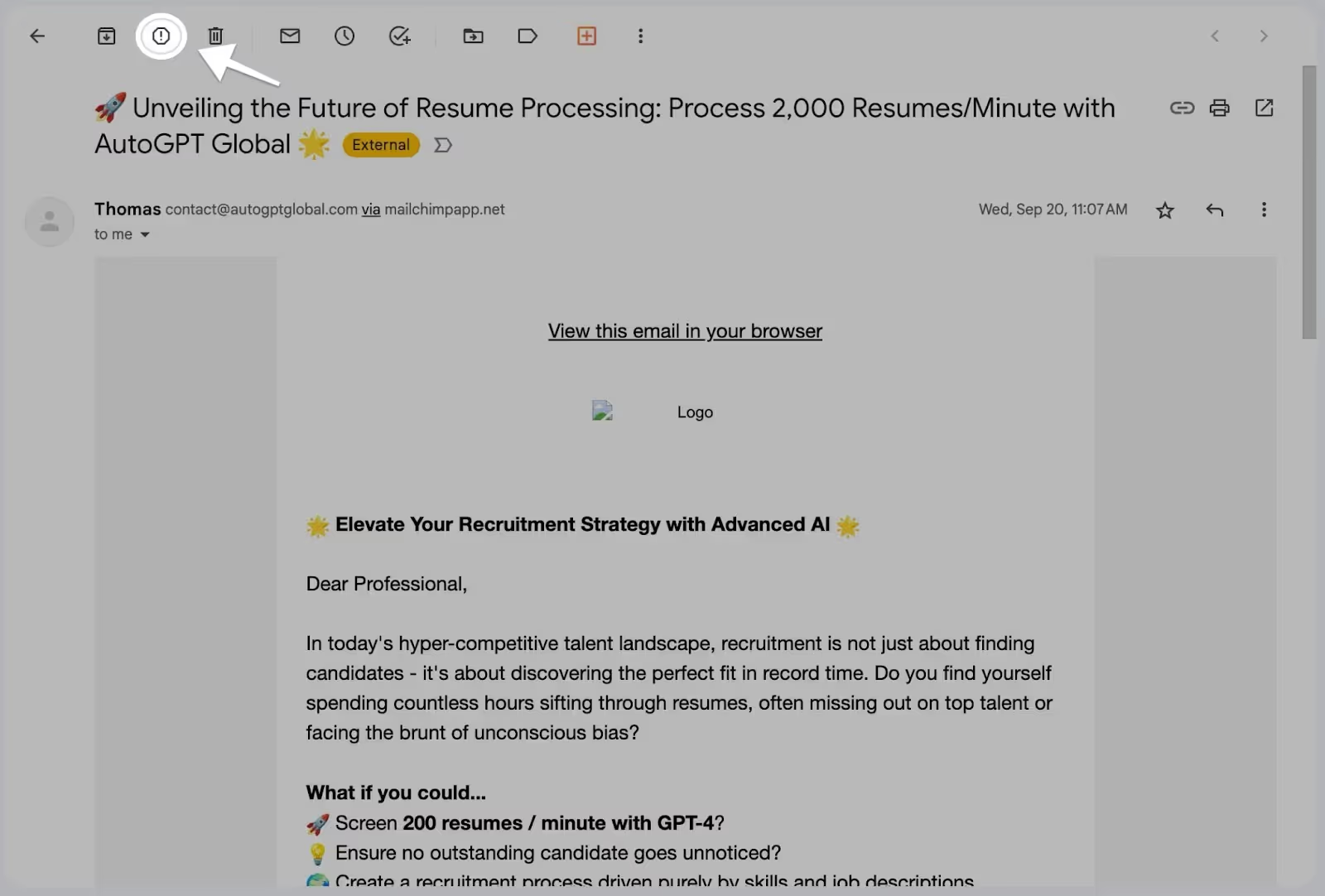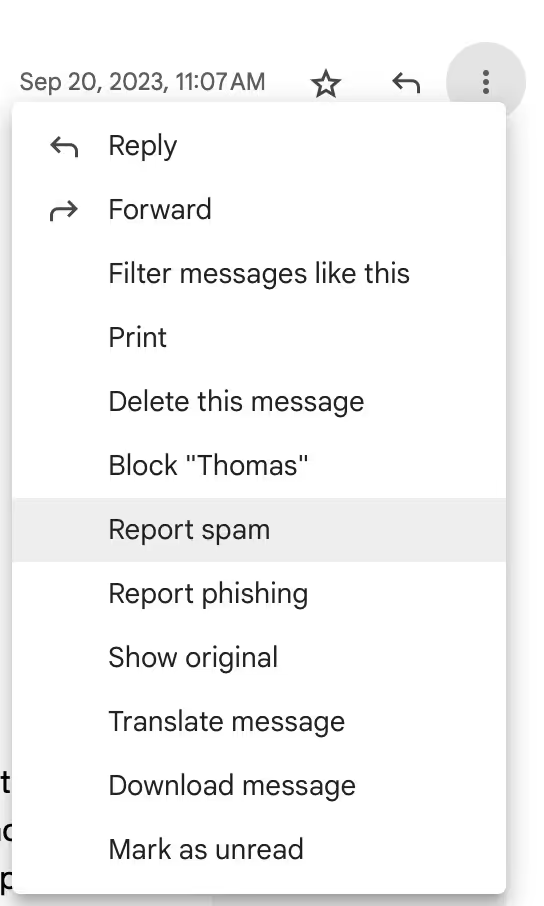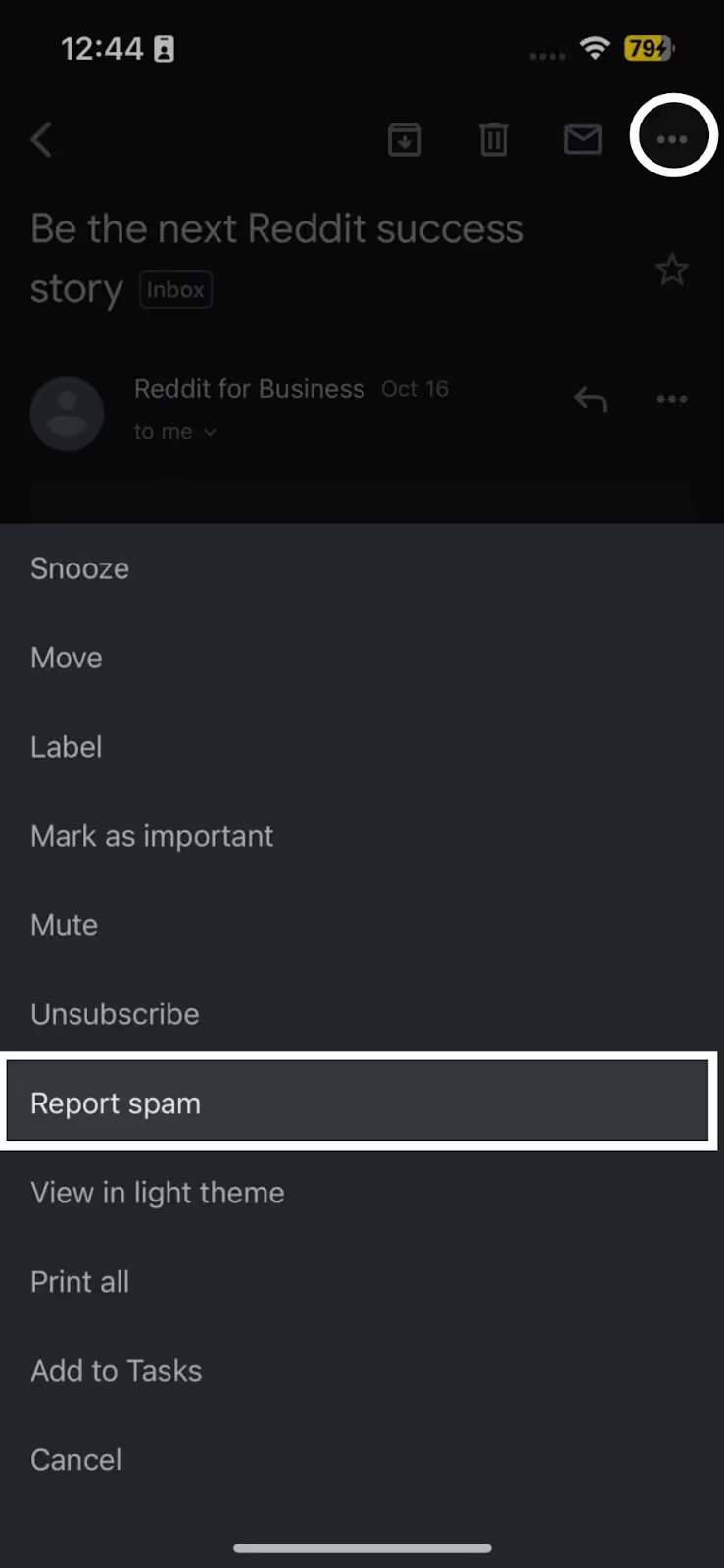How to delete all unread emails in Gmail
Learn how to manage your Gmail inbox more efficiently by deleting all unread emails. Follow these easy steps and incorporate Gmail tools and best practices for a clutter-free inbox.
Unwanted spam messages will clog up your inbox fast if you don’t take steps to stop them. Luckily, Gmail has several features available to help you keep spam emails at bay.
Blocking these annoying messages will help keep your inbox safe and organized, so you can stay on top of communication that matters. Here’s how to block emails in Gmail, as well as ways to report spam, unsubscribe from newsletters, and keep your inbox organized.
<a href="#reasons-block-emails" class="anchor-link">Reasons to block emails</a>
<a href="#how-to-block-emails-desktop" class="anchor-link">How to block emails in Gmail on your desktop browser</a>
<a href="#how-to-block-emails-mobile" class="anchor-link">Block emails in Gmail from your mobile device</a>
<a href="#how-to-unblock-somebody" class="anchor-link">How to unblock somebody in Gmail</a>
<a href="#how-to-report-spam" class="anchor-link">How to report spam in Gmail</a>
<a href="#how-to-unsubscribe" class="anchor-link">How to unsubscribe from emails in Gmail</a>
<a href="#how-to-delete-emails-sender" class="anchor-link">How to delete all emails from a sender</a>
<a href="#email-harassment" class="anchor-link">What to do if you experience email harassment</a>
<div class="anchor-wrapper"><div id="reasons-block-emails" class="anchor-target"></div></div>
There are many reasons to proactively block spam emails. When you're trying to have a productive day at work, manually deleting these junk emails is only going to slow you down. If your inbox is particularly stuffed, you might miss important messages from clients or coworkers.
These emails are more than just a nuisance–they can also be dangerous. Many cybercriminals use spam emails to distribute malware or phishing scams. These cyberattacks could damage your computer and compromise your personal information. Blocking and reporting spam emails helps keep you safe online.
When you block an email address, all future emails from that sender will go to your spam folder, rather than your main inbox. If you’re receiving repeat spam emails from a specific company or individual, this is the most efficient way to keep their messages away from your primary inbox.
<div class="anchor-wrapper"><div id="how-to-block-emails-desktop" class="anchor-target"></div></div>
![A screenshot of the email draft in Gmail displaying the dropdown menu when you click the three dots at the upper right corner, with the "Block [sender's name]" highlighted](https://cdn.prod.website-files.com/5b7f24cc900973de13d7beb4/65317a825a60c30d6cd8cf34_6-zPSDWlBTAh7AF9aTXT5t3VJLZmv4tgOP5KhSvIyItMVctIB_uIf9xZQvbbi0JwbOL3u8doWwIoZEbjyvszOMIUvJCyTchaJaDh7nY_3K89vfOjJBB2jjZepPCOc8-mYW4otoMtsC3Wvi7nlgJ5bIQ.avif)
<div class="anchor-wrapper"><div id="how-to-block-emails-mobile" class="anchor-target"></div></div>
![A screenshot of the email draft of Gmail in dark mode displaying the drop down menu after clicking the three dots at the upper right corner, with "Block [sender's name] highlighted](https://cdn.prod.website-files.com/5b7f24cc900973de13d7beb4/65317a822dedee6dd95053ce_5No6VK9aZc1qgWsIxpqKRNWxZngw3WQ0WllSbfZih1RuCEtqEv_CCLygiL4SoejUN9V8zn0RYATgokpV5M8d6OhO9154HzHS9GSSvlhc9Q-A8U3JaH46XIcRn7oyCZ_qEW5t9hLBhBYkwTaZKOAojwY.avif)
You can also block an email address from the Gmail smartphone app using the same process.
You won’t be shown a confirmation window when you block an email address on mobile.
<div class="anchor-wrapper"><div id="how-to-unblock-somebody" class="anchor-target"></div></div>
If you’ve blocked someone on Gmail by accident or changed your mind, don’t worry–unblocking them is easy. There are a few different ways to unblock a contact.
The easiest way to unblock a sender is through Gmail settings.

Here’s how to unblock an email on a desktop computer:
You can also unblock a sender from the email that’s in your spam folder.
<div class="anchor-wrapper"><div id="how-to-report-spam" class="anchor-target"></div></div>
Gmail filters out many spam emails automatically based on feedback from their users. Reporting an email as spam will remove that email from your inbox and send feedback to Google. This will help them filter out similar messages in the future.
However, if you report a message as spam, you may still receive emails from that sender in the future. If you want to stop future unwanted messages from a specific sender, you’ll need to block them in addition to sending a spam report.

You can also use the more menu to report spam in Gmail from the email thread.


<div class="anchor-wrapper"><div id="how-to-report-phishing" class="anchor-target"></div></div>
Gmail also has a feature specifically for reporting phishing emails. This feature is only available on the desktop version of Gmail.
Phishing is a social engineering tactic where cybercriminals pose as trusted contacts. Using their adopted persona, they will attempt to trick their targets into revealing sensitive personal or financial information. They’ll also often include links that aren’t safe to click. Many phishing scams impersonate popular e-commerce brands like Amazon, or social media platforms, like Facebook and Instagram.
If you’ve received a phishing email, you can report it directly to Google through the desktop app.

Open the email and select the three vertical dots in the top right-hand corner of the screen. Scroll down and select “Report phishing”. This will send a report to Google prompting them to investigate and stop the attack.
<div class="anchor-wrapper"><div id="how-to-unsubscribe" class="anchor-target"></div></div>
If you receive repeated newsletters or promotional emails from a sender, you’ve likely ended up on their mailing list. Luckily, unsubscribing from these emails is usually very straightforward.

Unsubscribing from an email requires the sender to remove your email address from their distribution list, reducing unwanted content from that sender. This is different than blocking an email, which stops all emails from a specific sender, regardless of content, and may send them directly to the spam or trash folder. Blocking can be useful for persistent spam or malicious emails. Both actions aim to declutter your inbox, but they address different levels of unwanted emails.
The Federal Trade Commission requires all commercial emails to contain a working unsubscribe link. These links are usually placed at the bottom of the email.

However, Gmail also has its own convenient unsubscribe feature. At the top of most commercial emails, you’ll see an unsubscribe link next to the sender’s name. The promotional emails should stop within a few days of clicking this link.
<div class="anchor-wrapper"><div id="how-to-delete-emails-sender" class="anchor-target"></div></div>
While you can delete emails manually, this process is very time-consuming and will quickly become tedious. The fastest way to delete all emails from a specific sender is to create a filter. This also means that you won’t have to open emails to delete them, which can be helpful if you’re worried about cybersecurity.
Here’s how to create a filter that will automatically delete unwanted emails from a specific sender.

<div class="anchor-wrapper"><div id="email-harassment" class="anchor-target"></div></div>
In some cases, unwanted emails are more than just spam — they're a form of direct harassment. Gmail’s Program Policies prohibit harassment and intimidation. Be sure to report any harassment or intimidation emails directly to Google so they can remove the offending account from the platform.
If you're experiencing personal attacks via email, don't ignore them. Contact your local authorities right away for support, especially if you feel you may be in danger. Most state and local governments have laws in place prohibiting this type of online harassment.
